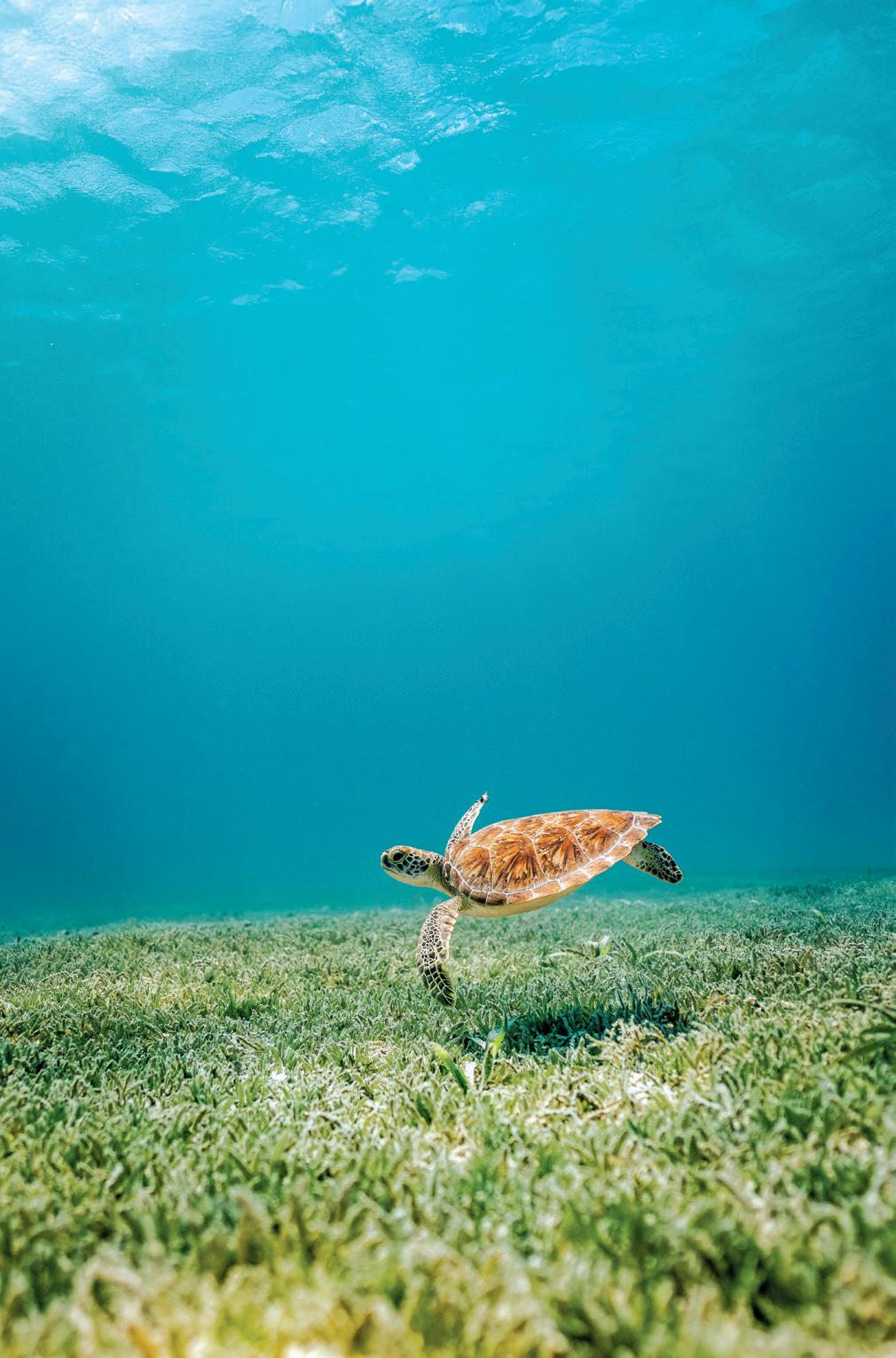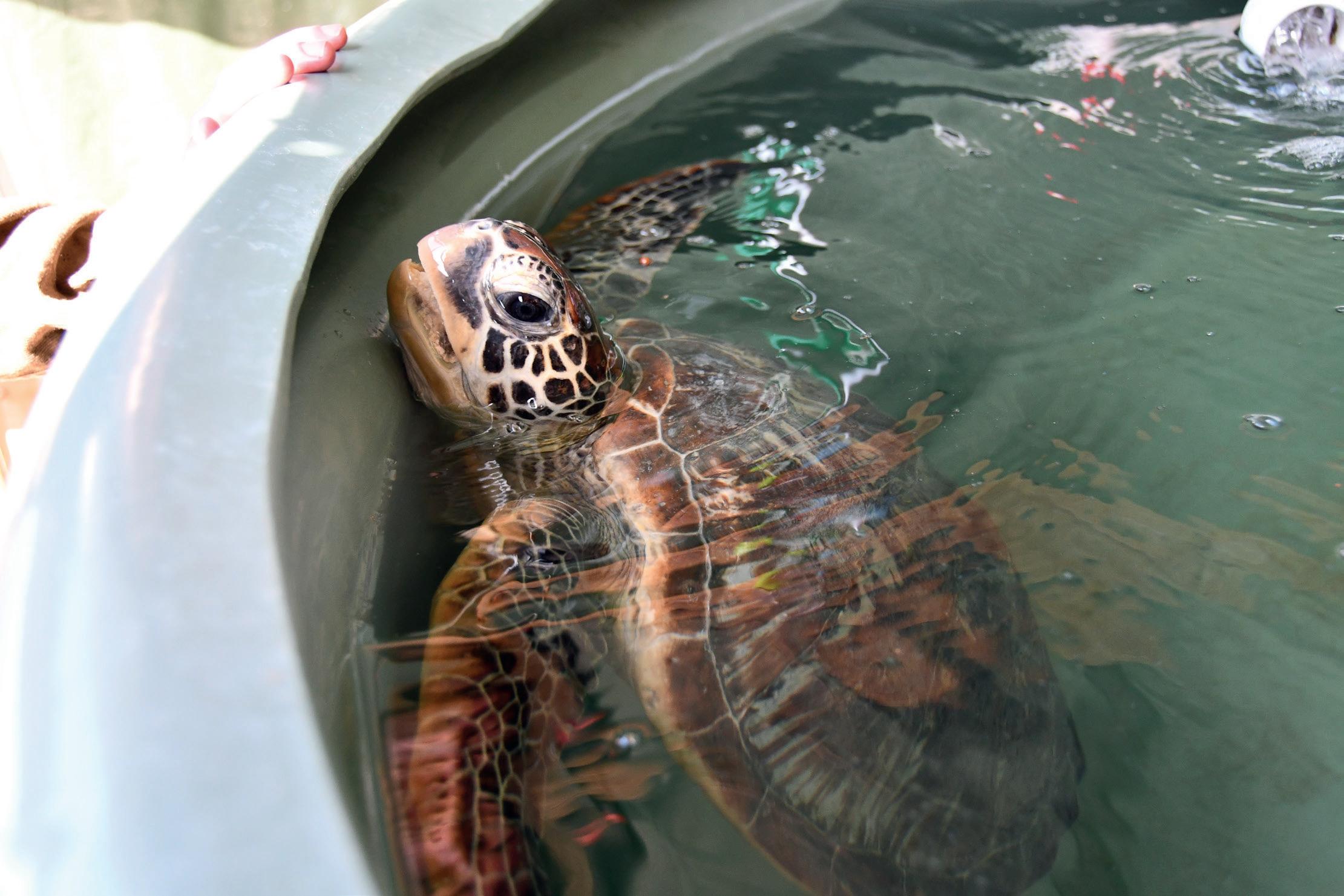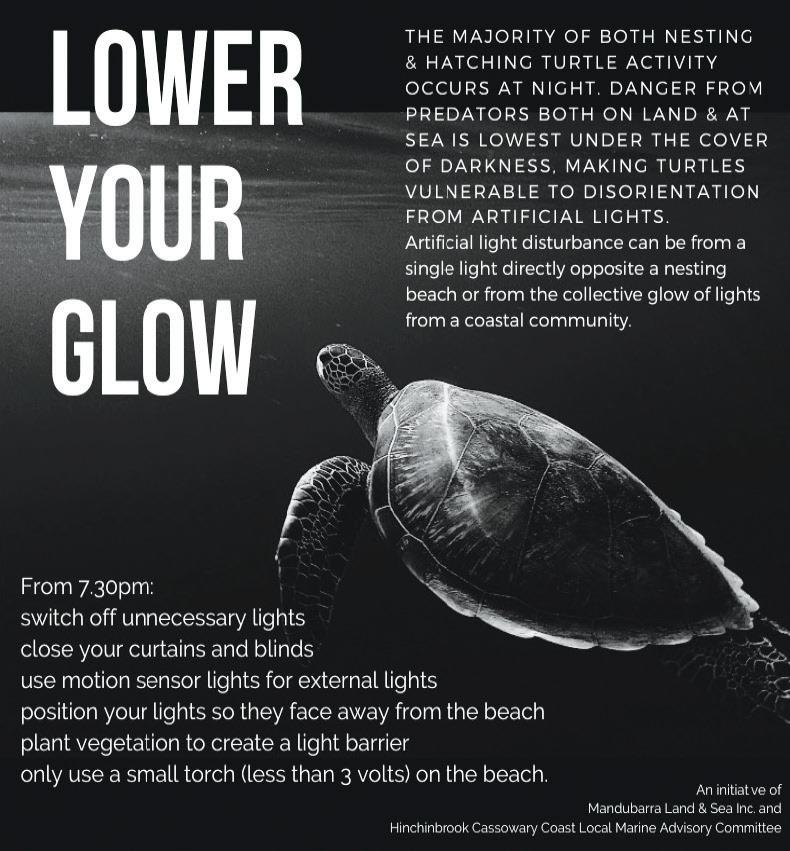
1 minute read
The 3 Ps impeding turtle hatchling success.
IT’S been a few long and warm months of waiting, and now it’s hatching time at the beach. Mandubarra Rangers have been monitoring turtle nests daily, and the wait is almost over. Rangers have also been working towards better conditions for increased hatchling success through their coastal management. Reducing the impacts stemming from the three deadly Ps have been highly prioritised in their work schedule of late.
Predation, light pollution and plastics are big hitters for turtle hatchlings. It seems an uphill battle, but traditional custodians across the region are putting in the hard yards to reduce these impeding factors to hatchling survival rates.
Advertisement

James Epong, a Mandubarra traditional owner, reports, “we’re managing country through a feral pig trapping program, engagement with stakeholders to lower their light pollution and cleaning the beaches ahead of and during the nesting season for improved nesting and hatching conditions”.
Residents in our region also do their bit to give the hatchlings a safer environment for starting life. Bingil Bay resident Jo Senior walks Narragon Beach regularly, picking up debris and has observed an increase recently of fishing line and tackle along the foreshore and entwined in the vegetation, mainly through the mangrove community south of the Jetty.
Installation of Tackle Bins at Cassowary Coast fishing hotspots is proving a success; however, a lot of tackle is still being found in our marine environment. Turtles and other marine life can be harmed, maimed or even killed through fishing line entanglement and ingestion. Responsible disposal of unwanted fishing tackle and knowing your fishing knots will aid in the reduction of this litter in our marine environment.
Light pollution is a show-stopper for turtles as they use the glow of the solar system to navigate when nesting and on their first journey to the big blue as a hatchling. Coastal lights create such a glow that it confuses turtle navigation. Coastal residents can lower their glow by turning off outside lights, closing curtains or facing artificial lights and TV screens away from the beach.

Predation is a natural occurrence; however, the balance has shifted unfavourably for turtles with the increase of feral pigs and wandering pets. When at the beach, keep pets on a lead and away from the dune vegetation to reduce disturbance, compaction and the potential of predation.








